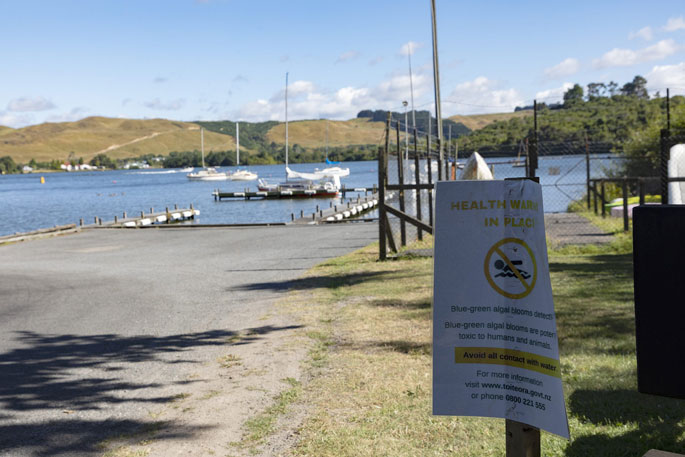Mixed messages and questions on whether it was safe to swim at Rotorua's holiday hotspots were concerns raised after a local community board was 'inundated” with calls from residents worried about algal blooms.
At a meeting of the Rotorua Lakes Community Board on Monday, the board said the confusion had impacted on tourists and numbers of lake users this summer, especially regarding whether a warning was for part of, or the whole, lake.
The board proposed bringing together key agencies to put out clear messaging.
Over summer, health alerts were issued for specific locations of Lake Rotoiti and Lake Rotorua, while other alerts covered the lakes in their entirety, because of algal bloom concerns.
Contact with water affected by blooms of blue-green algae can cause asthma and hay fever attacks in some individuals. It can also cause rashes, stomach upsets and in some cases neurological effects such as tingling around the mouth, headaches, breathing difficulties, and visual problems.
At the meeting board members, residents of Rotorua's lakes areas themselves, shared how they received calls from others not knowing whether it was okay or not for swimming in.
Member Peter MacMillan said he had been 'inundated” with confused calls; information uploaded to different websites was not the same and he even had people knocking on his door for answers.
Nick Chater said lake users at Rotoiti did not know where was safe to be on or in the water and it had impacted on the numbers out enjoying it. There was a 'feeling” the alert was lake-wide.
'I know the numbers on the lake recreationally and tourism-wise were way down.”
Chairman Phill Thomass was advised by the Bay of Plenty Regional Council it did the sampling of the sites weekly, but was not involved in the communication of any warnings.
It did, however, reflect any messaging from Toi Te Ora health agency.
Warnings were decided on by a health professional from Toi Te Ora, and the Rotorua Lakes Council helped communicate this.
The regional council uploaded its data to LAWA, which automatically categorized the safety of swimming spots based on the results - this was displayed as red, meaning not safe to swim, orange, meaning caution advised, and green, meaning all good.
'For whatever reason, the system seems to have broken down a bit over summer,” Thomass said.
At the meeting, he asked for support to organise a meeting with key agencies to work for clearer communication.
In the weeks leading up to Christmas he said there were warnings on Lakes Rotoiti and Rotorua, at specific sites. By December 22, this changed to be the lakes on the whole, and there was no update until January 6.
The stage of what the warning was at differed on websites due to the shut-down period, he said.
In an attempt to fix the issue, Thomass asked the other board members to support him in gathering these agencies together to work out a 'more co-ordinated” approach over holiday shut-down periods.
 Rotorua Lakes Community Board chairman Phill Thomass. Photo / Laura Smith.
Rotorua Lakes Community Board chairman Phill Thomass. Photo / Laura Smith.
Rotorua Lakes Council sport, recreation and environment manager Rob Pitkethley joined the meeting and said its teams put up health warning signs as they were issued by Toi Te Ora. There were issues getting the warning signs it placed at locations out in a timely manner over Christmas.
As well as this, of the sixty signs that were put up, forty had been removed or taken from where they were placed.
He said links on the council website took users to the LAWA information. He said it was the fastest data it had access to.
Regional council environmental scientist, James Dare said it would continue to work with Toi Te Ora and Rotorua Lakes Council to ensure continuous improvement.
He said the most up-to-date information was on the LAWA website.
Toi Te Ora Public Health medical officer of health Dr Phil Shoemack said agencies met at the start of summer monitoring to take a co-ordinated approach in line with national guidelines.
If a health warning is issued the signs are put up, a media release is issued and distributed. These are routinely reviewed.
The officer issued a warning for any site where there was concern about possible increased risk to health.
'Swimming in any natural body of water is not without some risk of getting an infection or having a reaction should the water be contaminated in some way.”
He said general advice and up-to-date information on specific warnings was on the Toi Te Ora Public Health website and social media channels, along with recorded health warning information on its 0800 number (0800 221 555).
- Public Interest Journalism funded through NZ on Air.




0 comments
Leave a Comment
You must be logged in to make a comment.